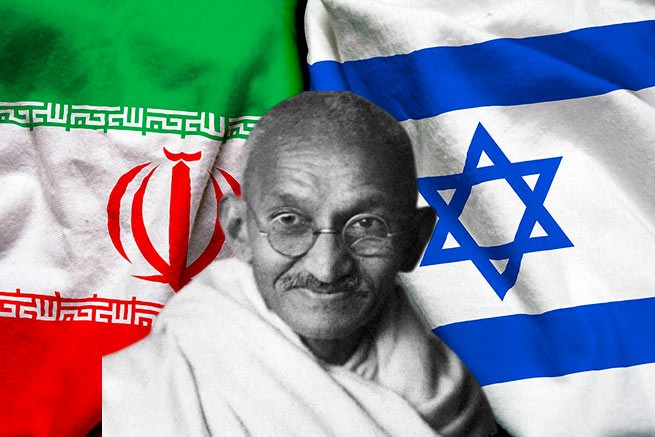The titular phrase many attribute to Gandhi, is also the slogan of the American anti-war movement. It was very relevant in the early 2000s, when the United States began its large-scale campaigns in Afghanistan and then in Iraq, which, as is now well known, ended disastrously.
This is the sloganwhich emphasizes that the path of retribution is slippery and dangerousbecause he, usually leads to disaster. Psince then any – and always controversial – benefits are temporary, but the damage it causes is permanent and unforgivable.
Ultimately, it is useful to remember that the reason for the creation of bodies of international law, international organizations and international courts, important achievements of human civilization, is precisely to avoid lynching as it is characterized in domestic law, retribution when it comes to international law (if , of course, they do not fall under the control of external structures. Editor’s note). Because their acceptance means the end of civilization, one massacre cannot be the solution to another massacre, a new extended war the answer to a war which, if hypocrisy had not remained in the international community, and if the law of the strong and interests had not prevailed in practice, would never would not have started.
I say this because it is urgent to find a way out before an absolute disaster occurs with the war spreading to the Middle East. The blows are increasing, the situation is becoming more complicated, “undeclared” wars that have been fought for years, but on a limited scale, are coming to the surface.
Although Iran was not directly involved in what happened on October 7, 2023, it has nevertheless supported organizations opposed to Israel for many years, just as Israel itself has supported other organizations that acted against Iran.
Israel believed that in retaliation for Iran's long-standing ties with Hezbollah and the Houtists, it must strike a blow to the hierarchy of the Revolutionary Guards, especially those who lead the Quds Force, the part of Iran's elite military structure that handles cross-border movements. That's why on April 1st they Iran's diplomatic building in Damascus was bombed (Syria), resulting in the death of senior members of the Revolutionary Guard.
Iran “vowed revenge” and therefore decided to launch a spectacular drone and missile attack directly on Israeli territory – the first direct attack on Israel by a state in the region since 1991, when Saddam Hussein sent missiles.
Israel says the attack had no serious consequences because the vast majority of the missiles and drones were intercepted by air defenses, with the assistance of Western allies who rushed to protect it. However, on a symbolic level, the blow dealt to the Israeli government was very strong, so it promised to strike back “at a convenient time.”
Only in the event of a retaliatory strike, Israel will most likely try to strike Iran’s strategic targets, for example, those related to its nuclear program, which, after all, is the real goal of the Jewish state. But this development of events is unlikely to go unanswered by Tehran, who has already warned of a much harsher response to Israel if it “will make another mistake.”
Thus, we are waiting for an escalation, a direct conflict between the two most powerful powers in the region, from which, by the way, there is still The energy supply of the planet largely depends. And in this case, it is very likely that the allies of both sides will be actively involved in the conflict, mainly the United States in the case of Israel, and in the case of Iran, in addition to the escalation from allied movements in the region, such as Hezbollah in Lebanon, the Houthis in Yemen and pro-Iranian forces in Iraq, the decisive question is what position countries with good relations with Iran, such as Russia, will take. And all this on a planet that is already divided.
I write all this to illustrate how dead-end the logic of retaliation can be, and how easily it can lead to uncontrollable situations. Not to mention that in such cases one ends up being trapped by the other as one pole ends up playing the opponent's game: i.e. Israel “justifies” Tehran's rhetoric against itself, and Iran, in turn, gets what it supposedly wanted to avoid – regional conflict.
At the same time, the Palestinian drama in Gaza, which should be our main concern if a ceasefire is to finally be achieved, has unfortunately taken a back seat to the broader geopolitical antagonisms and calculations in the region. For all these reasons, if there is one thing that is paramount today, it is to stop playing with fire.
There should be no escalation, no “retribution” that brings us closer to disaster. And this will determine whether it will finally appear “international community”, capable of applying reason and saving its honor, which it has so far failed to do due to the absolute humanitarian disaster occurring in Gaza.







More Stories
Hurriyet: “Greece asked Turkey for permission to lay cable – Turkish jurisdiction recognized”
France: 'Chaos' on trains and metro. Airport evacuated. Dozens of attacks on athletes and tourists
What's Happening to America's Presidential Candidates (Video)